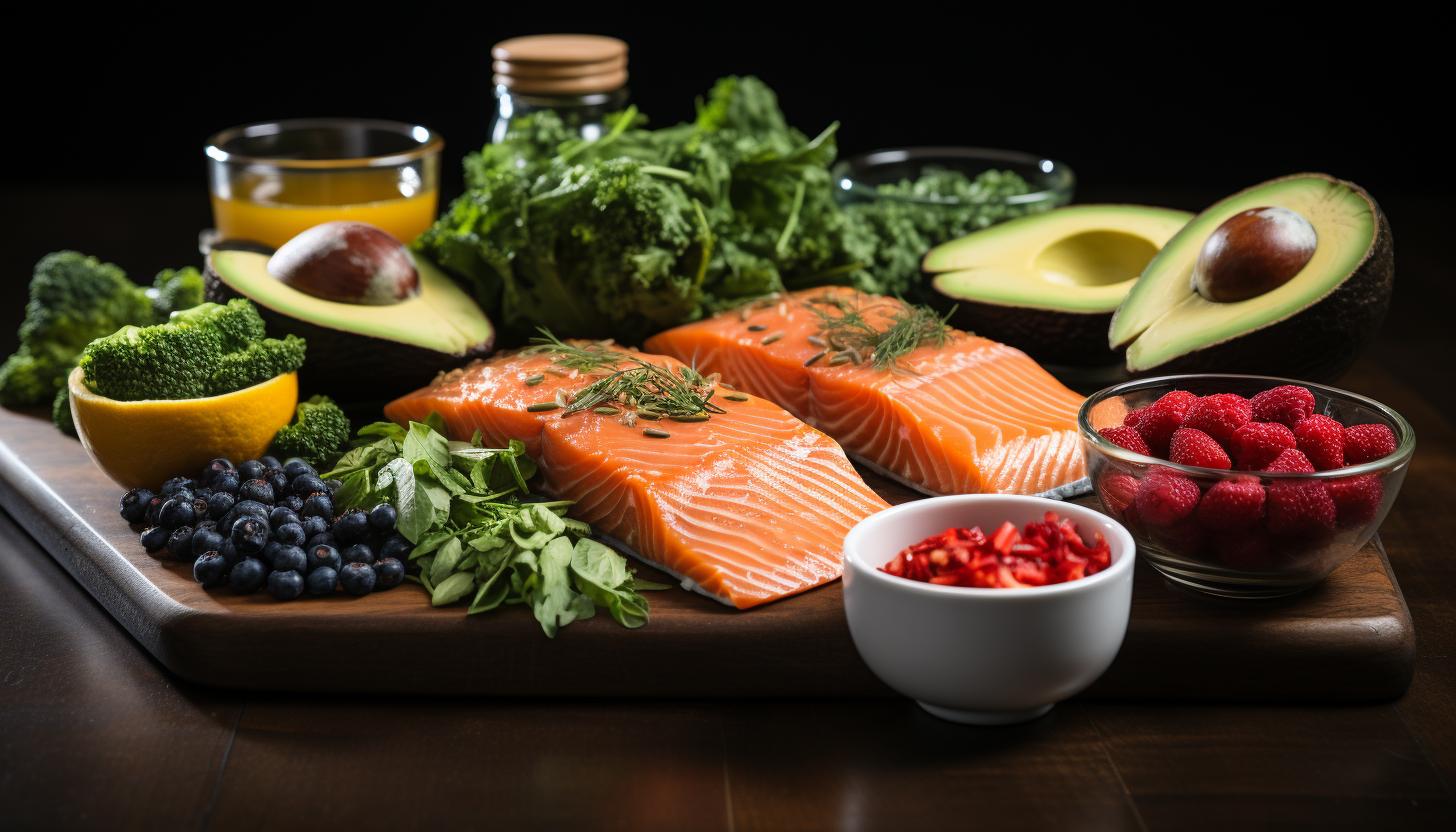Sports Nutrition for Long-Distance Running: Strategies and Tips

Are you ready to take your long-distance running to the next level?
Fueling your body with proper nutrition is essential for peak performance.
In this article, we will provide you with evidence-based strategies and tips to optimize your sports nutrition game.
From pre-race prep to mid-race fueling and post-run recovery, we’ve got you covered.
So lace up those running shoes, because it’s time to conquer those miles like a pro!
Fueling Your Body: Nutrition for Long-Distance Running

If you’re a long-distance runner, it’s important to understand the role of nutrition in fueling your body. Proper nutrition can have a significant impact on your performance and recovery. One key aspect of sports nutrition for runners is timing your meals and snacks appropriately.
Nutrition timing refers to when you eat certain nutrients to optimize performance and recovery. Before a long run or race, it’s essential to consume carbohydrates to provide energy for your muscles. This process is known as carbohydrate loading. By increasing your carbohydrate intake in the days leading up to an event, you can maximize glycogen stores in the muscles, which will help delay fatigue during prolonged exercise.
Carbohydrate-rich foods such as whole grains, fruits, vegetables, and legumes should be included in your pre-race meals and snacks. Aim to consume these foods 1-4 hours before exercising to allow enough time for digestion and absorption.
During long-distance runs, it’s crucial to replenish carbohydrates by consuming sports drinks or gels containing simple sugars like glucose or fructose. This will help maintain blood sugar levels and provide immediate fuel for your working muscles.
Pre-Race Prep: Eating Right for Peak Performance

Before a race, it’s important to eat properly for optimal performance. Race day nutrition plays a crucial role in fueling your body and ensuring that you have the energy and stamina to perform at your best. The right pre-race meal can provide you with the necessary carbohydrates, protein, and fluids to support your muscles and maintain hydration levels.
To start off your race day on the right foot, consider incorporating these pre-race meal ideas into your routine. First and foremost, aim for a balanced meal that includes carbohydrates for energy, such as oatmeal with berries or whole wheat toast with peanut butter. Adding some lean protein like eggs or Greek yogurt can help support muscle recovery during the race.
In addition to carbohydrates and protein, don’t forget about hydration. Drinking plenty of water is key before a race to prevent dehydration. You could also include electrolyte-rich beverages like coconut water or sports drinks to replenish lost minerals during intense physical activity.
Hydration Hacks: Staying Hydrated on the Run

Staying properly hydrated while running is essential for peak performance and avoiding dehydration. Hydration strategies play a crucial role in maintaining your body’s fluid balance during long-distance runs.
One key factor to consider is electrolyte balance. Electrolytes, such as sodium and potassium, help regulate fluid levels in the body and are lost through sweat during exercise.
To maintain proper hydration, it is recommended to drink fluids before, during, and after your run. Before starting your run, aim to consume around 16-20 ounces of water or sports drink to ensure you are adequately hydrated beforehand.
During your run, it’s important to listen to your body and drink when you feel thirsty. Sip on fluids every 15-20 minutes or based on personal preference.
In addition to water, sports drinks can be beneficial as they replenish electrolytes lost through sweat. These beverages contain carbohydrates that provide energy and aid in fluid absorption. However, be cautious of the sugar content in some sports drinks.
It’s also important not to solely rely on thirst as an indicator of hydration status since thirst may not accurately reflect our fluid needs while running. Monitoring urine color is another useful tool – pale yellow urine indicates adequate hydration.
Mid-Race Nutrition: Maintaining Energy Levels

During a race, it’s crucial to maintain energy levels through proper fueling. Sustaining endurance requires strategic race fueling to keep your body fueled and performing at its best. To achieve this, it’s essential to consume carbohydrates during the race.
Carbohydrates are the primary source of energy for your muscles, and they can be easily broken down and absorbed by your body.
One effective strategy is to consume easily digestible carbohydrates in the form of energy gels or sports drinks. These products typically contain a blend of simple sugars like glucose and fructose, which can quickly enter the bloodstream and provide an immediate source of energy.
It’s recommended to consume around 30-60 grams of carbohydrates per hour during prolonged endurance events. This will help replenish glycogen stores in your muscles and prevent fatigue. However, it’s important to experiment with different amounts and timing during training runs to find what works best for you.
Additionally, don’t forget about hydration when planning your mid-race nutrition strategy. Proper hydration is crucial for maintaining performance and preventing dehydration-related issues such as muscle cramps or fatigue. It’s advisable to pair carbohydrate intake with regular fluid intake throughout the race.
Recovery Strategies: Replenishing and Repairing After the Run

After a run, it’s important to focus on replenishing your body and repairing any muscle damage. Post-run nutrition plays a crucial role in facilitating muscle recovery and optimizing performance for your next training session or race. Consuming the right nutrients at the right time can enhance protein synthesis, glycogen replenishment, and reduce inflammation.
To kickstart the recovery process, prioritize consuming carbohydrates and protein within 30 minutes after your run. Carbohydrates help restore glycogen stores, while protein aids in muscle repair. Aim for a ratio of 3:1 or 4:1 of carbohydrates to protein. Good post-run snack options include a banana with peanut butter or a Greek yogurt with granola.
In addition to carbohydrates and protein, don’t forget about hydration. After sweating during your run, you need to replace lost fluids to maintain optimal bodily functions. Water is usually sufficient for shorter runs, but for longer efforts or intense workouts lasting over an hour, consider electrolyte-rich sports drinks to replenish sodium levels.
Lastly, incorporating anti-inflammatory foods into your post-run meals can help reduce muscle soreness and aid in recovery. Foods like berries, turmeric, fatty fish rich in omega-3 fatty acids (such as salmon), leafy greens like spinach or kale are all great choices.
Remember that proper post-run nutrition is essential not only for promoting muscle recovery but also for enhancing overall performance in long-distance running. By fueling your body with the right nutrients at the right time after each run, you’ll optimize your training gains and be ready for future challenges ahead!
Conclusion
Now that you have the knowledge and strategies to fuel your body for long-distance running, you’re ready to conquer any race.
Remember, preparation is key. So make sure to eat right before the big day and stay hydrated throughout your run.
Don’t forget to refuel with mid-race nutrition. It’s important to prioritize recovery after crossing the finish line.
By implementing these tips and techniques, you’ll be able to optimize your performance and achieve your running goals.
So lace up those shoes and let’s hit the pavement!






